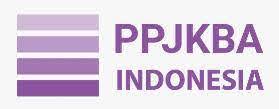Integrating QUIZIZZ into Arabic Language Teaching: Uses and Educational Implications
DOI:
https://doi.org/10.58223/al-irfan.v8i1.379Keywords:
Gamification of Learning, Quizziz, Arabic Language LearningAbstract
The development of digital technology, although encouraging the adoption of gamification-based platforms in education, has not yet seen much research conducted to determine their effectiveness and challenges in Arabic language learning. Quizzes are one of the more popular platforms, currently offering real-time scoring and leaderboards as part of the learning experience. Therefore, this study aims to analyze the motivation, effectiveness, and challenges in using Quizizz for Arabic language learning at MAN 1 Cirebon. This study uses a qualitative approach with a phenomenological method involving five students selected through purposive sampling. Data were collected through in-depth interviews and analyzed using the interactive model of Miles, Huberman, and Saldana. The research results show that the use of Quizizz can enhance student motivation through competitive elements, enrich subject understanding in a more enjoyable way, and create activity in the classroom environment. However, there are serious challenges such as limited internet access, data quotas, imperfect devices, and time constraints as obstacles in its implementation. The implication of this research is that the integration of gamification platforms must also consider the readiness in terms of technological infrastructure and the psychological factors of learners to achieve the best results in education. Recommendations in this study include enhancing flexible features and exploring more interactive platforms to adapt to the needs and characteristics of students in different learning contexts.
References
Abdullah, R. (2016). Teaching Media in the Teaching of Arabic Language to Non-Native Arabic Speakers. Dinamika Ilmu, 16(1), 93–106. https://doi.org/10.21093/di.v16i1.294
Al-Arif, A. H., & Gumiandari, S. (2024). Pembelajaran Bahasa Arab di Era Digital: Tantangan Implementasi, dan Peluang. Jurnal Ilmu Pendidikan, 2(7), 987–998.
Alhazmi, A. A., & Kaufmann, A. (2022). Phenomenological Qualitative Methods Applied to the Analysis of Cross-Cultural Experience in Novel Educational Social Contexts. Frontiers in Psychology, 13(April). https://doi.org/10.3389/fpsyg.2022.785134
Binti Yahaya, H., Najwa Shaharuddin, H., Suraiyya Abdul Raup, F., Zahidah Ahmad, N., Hatta Shafri, M., Pengajian Bahasa, A., & Shah Alam, U. (2022). Persepsi Pelajar Terhadap Pemanfaatan Gamifikasi Dalam Pembelajaran Bahasa Arab Students’ Perception of the Use of Gamification in Arabic Language Learning. International Journal of Modern Languages and Applied Linguistics, 6(2), 1.
Brooks, H., Bee, P., & Rogers, A. (n.d.). Chapter 8 : Introduction to Qualitative Data Analysis. 108–118.
Cássia, M. De. (2016). Tecnologias digitais na educação : Desafios e oportunidades para o ensino e aprendizagem.
Education, L. (2024). Transformation of Student Motivation Through the Use of Quizizz in Language Learning : A Longitudinal Approach in Secondary Education. 6(6), 1–8.
Estuarso, D. (2017). When Local Goes Global: English Teachers As Cultivators Of Local Culture In A Globalized Region. KnE Social Sciences, 1(3), 60. https://doi.org/10.18502/kss.v1i3.725
Hanif, A., Herman, Mudinillah, A., & Rahmi, P. W. L. (2023). Development of the Quizizz Platform as an Interactive Quiz-Based Learning Media for Arabic Language Lessons at Madrasah Ibtidaiyah. International Journal of Membrane Science and Technology, 10(2), 372–384. https://doi.org/10.15379/ijmst.v10i2.1207
Hashimov, E. (2015). Qualitative Data Analysis: A Methods Sourcebook and The Coding Manual for Qualitative Researchers. Technical Communication Quarterly, 24(1), 109–112. https://doi.org/10.1080/10572252.2015.975966
Ilhami, R., Wargadinata, W., Hasan, N., Ikhlas, M., & Najar, S. A. (2022). Quizizz As an Arabic Vocabulary Media Learning in Digitalization Era: Process, Weakness and Strengths. Al-Ta’rib : Jurnal Ilmiah Program Studi Pendidikan Bahasa Arab IAIN Palangka Raya, 10(1), 13–24. https://doi.org/10.23971/altarib.v10i1.3787
Jun, M., & Lucas, T. (2025). Gamification elements and their impacts on education: A review. Multidisciplinary Reviews, 8(5), 1–7. https://doi.org/10.31893/multirev.2025155
Keilmuan, J., Arab, B., & Indriana, D. (2024). Al-Ittijah Improving Arabic Language Skills in the Digital Era to Realize Golden Indonesia 2045. 16(2), 59–74. https://doi.org/10.32678/alittijah.v16i2.10563
Khumaedi, A. A., Islam, U., Abdurrahman, N. K. H., Pekalongan, W., Baru, P., & Pekalongan, K. (2024). Perkembangan Literasi Digital Bahasa Arab : Peluang dan Tantangan Era.
Kotob, M. M., & Ibrahim, A. (2019). Gamification: The Effect on Students’ Motivation and Achievement in Language Learning. Journal of Applied Linguistics and Language Research, 6(1), 177–198. www.jallr.com
Lubis, M., Solehudin, R. H., & Safitri, N. D. (2024). Seberapa “pengaruh” media, fasilitas, dan minat belajar terhadap hasil belajar ekonomi siswa? Jurnal Penelitian Tindakan Kelas, 1(3), 180–188.
Masrop, N. A. M., Ishak, H., Zainuddin, G., Ramlan, S. R., Sahrir, M. S., & Hashim, H. (2019). Digital Games Based Language Learning for Arabic Literacy Remedial. Creative Education, 10(12), 3213–3222. https://doi.org/10.4236/ce.2019.1012245
Mcgill, M. M., Ryoo, J., Scott, A., Stephenson, C., & Warner, J. R. (2022). The Case for Acknowledging Subjectivity in CS Education Research Data. SIGCSE 2022 - Proceedings of the 53rd ACM Technical Symposium on Computer Science Education V.2, 1013–1014. https://doi.org/10.1145/3478432.3499225
Nafia, Z. I., Hidayati, D., & Sulisworo, D. (2023). The Application of the Technology Readiness Acceptance Model on Education. Journal of Novel Engineering Science and Technology, 2(01), 9–15. https://doi.org/10.56741/jnest.v2i01.265
Nasni Naseri, R. N., Abdullah, R. N. R., & Esa, M. M. (2023). The Effect of Gamification on Students’ Learning. International Journal of Academic Research in Progressive Education and Development, 12(1), 792–797. https://doi.org/10.6007/ijarped/v12-i1/16253
Nova, M., Chaerunnisah, I. U., & Lastari, N. K. H. (2023). Challenges in Utilizing Quizizz As a Formative E-Assessment Media in English for Tour Operations Class. Premise: Journal of English Education, 12(3), 971. https://doi.org/10.24127/pj.v12i3.8001
Nu, M. (2023). يف ) QUIZIZZ ( زيزيوك ة بعل مادختساب ةيبرعلا ةغللا ميلعتلا لئاسو لا ةيلاعف ليلحت ةباتكلا ةراهلما ةيقرت. 11(1), 22–28.
Rezi, M., Noor, A. F. M., & Nicholas, T. (2024). Utilization of Gamification in Arabic Language Learning to Increase Student Motivation and Achievement. Lughawiyah: Journal of Arabic Education and Linguistics, 6(1), 1. https://doi.org/10.31958/lughawiyah.v6i1.12559
Rohani Binti Jasni, S., Binti, S., Ii, Z., Bin, H., Iii I Pelajar, Z., & Malaysia, K. (2018). PENDEKATAN GAMIFIKASI DALAM PEMBELAJARAN BAHASA ARAB Gamification Approach In Learning Arabic Language. Jurnal Pengurusan Dan Penyelidikan Fatwa, 358–367.
Seixas, P., & Conrad, C. F. (2009). Generalizing from Educational Research. In Generalizing from Educational Research. https://doi.org/10.4324/9780203885376
Syofyan, R., & Siwi, M. K. (2018). The Impact of Visual, Auditory, and Kinesthetic Learning Styles on Economics Education Teaching. 57(Piceeba), 642–649. https://doi.org/10.2991/piceeba-18.2018.17
Downloads
Published
How to Cite
Issue
Section
License
Copyright (c) 2025 Abdul Gofur, Khasan Aedi, Pradi Khusufi Syamsu Syamsu

This work is licensed under a Creative Commons Attribution 4.0 International License.
Lisensi :
Al-Irfan: Journal of Arabic Literature and Islamic Studies is published under conditions Creative Commons Attribution 4.0 International License / CC BY 4.0 This license permits anyone to copy and redistribute this material in any form or format, modify, modify, and make derivative works of this material for any purpose, including commercial purposes, so long as they credit the author for the original work.











